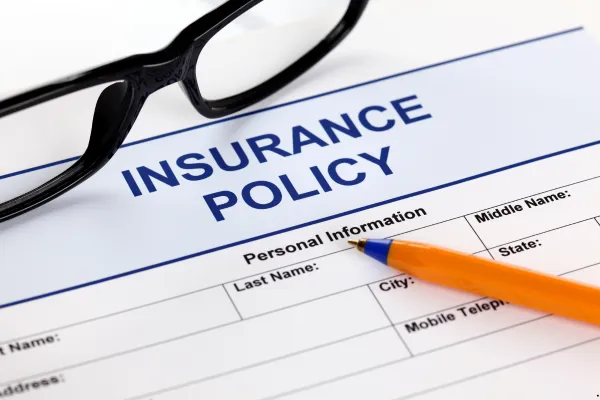
Understanding Insurance Requirements and Options
Understanding Insurance Requirements and Options
Navigating insurance for sober living homes involves unique considerations that extend beyond standard residential coverage. Proper insurance protection not only safeguards your investment but also ensures the wellbeing of residents and staff while meeting regulatory requirements. This guide breaks down essential insurance considerations for recovery residence operators.
General Liability Insurance: Your Foundation
Every sober living home should start with comprehensive general liability coverage. This insurance protects against common incidents like slip-and-fall accidents, property damage claims, and other third-party injuries. When selecting a policy, look specifically for:
Coverage limits of at least $1 million per occurrence and $2 million aggregate
Medical expense coverage for non-staff injuries
Personal injury protection covering reputational harm
Legal defense cost coverage
Many general liability policies exclude recovery residences or have specific endorsements for addiction treatment facilities, so work with an agent familiar with behavioral healthcare settings to ensure appropriate coverage.
Property Insurance: Protecting Your Physical Assets
Property insurance covers your building and contents against damage from fire, weather events, vandalism, and other covered perils. For sober living homes, consider these specific considerations:
Replacement cost coverage rather than actual cash value
Business interruption insurance to cover expenses during rebuilding
Additional coverage for specialized equipment or furnishings
Appropriate coverage limits reflecting true replacement costs
Insurers may require specific safety protocols like sprinkler systems, security alarms, or regular property inspections to maintain favorable rates and terms.
Professional Liability Insurance: Mitigating Service Risks
Also known as Errors and Omissions (E&O) insurance, professional liability coverage protects against claims related to services provided. While sober living homes typically offer less clinical intervention than treatment centers, operators still face exposure from:
Negligent supervision allegations
Failure to maintain appropriate boundaries
Inadequate safety protocols
Improper admissions or discharge practices
Coverage requirements often depend on your program model and services offered. Homes providing recovery coaching, peer support, or monitoring services should prioritize this protection.
Workers' Compensation: Supporting Staff Safety
If your sober living home employs staff, workers' compensation insurance is typically required by state law. This coverage pays for medical expenses and partial wage replacement if employees are injured on the job. Consider:
Classification codes specifically for recovery support workers
Coverage for part-time and full-time employees
Return-to-work programs that can reduce premium costs
Safety training protocols that may qualify for rate reductions
Even if you primarily use contractors, consult with an insurance professional about potential workers' compensation obligations, as misclassification can result in significant penalties.
Directors and Officers (D&O) Insurance: Leadership Protection
For incorporated entities and nonprofits, D&O insurance protects board members and executives from personal liability related to management decisions. This coverage becomes increasingly important as organizations grow, particularly if you:
Have an active board of directors
Seek grant funding or donations
Partner with other community organizations
Plan for program expansion
D&O insurance can help attract qualified board members who might otherwise hesitate to serve due to personal liability concerns.
Specialized Coverage Options
Depending on your specific operations, consider these additional protections:
Cyber Liability Insurance: Protects against data breaches involving resident information
Sexual Abuse and Molestation Coverage: Often excluded from general liability but essential for residential facilities
Auto Insurance: Commercial coverage for any organization-owned vehicles or employee use of personal vehicles
Umbrella Insurance: Provides additional liability protection beyond primary policy limits
Finding the Right Insurance Partner
Working with an insurance broker specializing in behavioral healthcare facilities often yields better coverage and rates than attempting to navigate the market independently. Experienced brokers understand:
State-specific requirements for recovery residences
Certification standards from organizations like NARR (National Alliance for Recovery Residences)
Market options for high-risk or specialized coverage needs
Risk management practices that can reduce premiums
When evaluating potential insurance partners, ask about their experience with similar facilities and request references from other recovery residence operators.
Conclusion
Insurance represents a significant operational expense for sober living homes, but inadequate coverage can result in devastating financial consequences. Review your insurance portfolio annually, adjusting coverage as your program evolves and grows. Remember that insurance is not just about compliance—it's an essential component of sustainable operations that allows you to focus on your mission of supporting individuals in recovery.
Want Help Building a Profitable, Ethical Sober Living Business?
At Sober Living School, we teach you how to launch, grow, and scale your sober living home the right way — with proven financial frameworks, ready-to-use software, and expert mentorship.
✅ Learn to price correctly
✅ Automate your intake & payments
✅ Build a scalable, sustainable model
📈 Ready to maximize your revenue and impact?
👉 Join our coaching program today »
